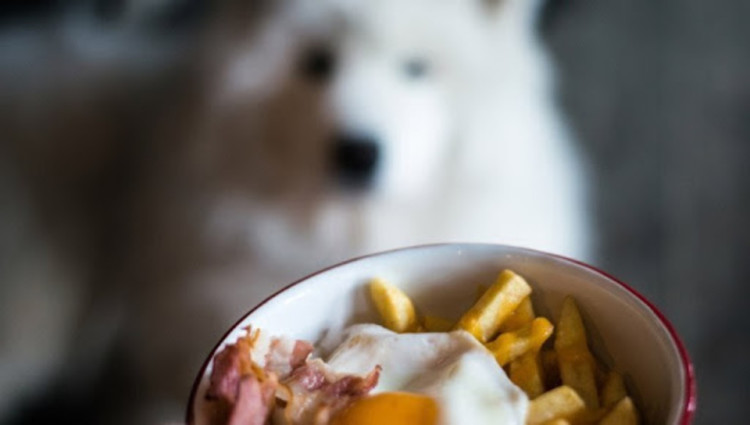Are you tempted to share a bite of potatoe for your dog from the dinner table? Of course you are when they’re looking with those big eyes! However, not all foods we consume are safe for our pets. Potatoes, for instance, seem innocent enough but can dogs eat potatoes?
The answer is: it depends on the amount you give your pup, as well as the method of preparation. If eaten raw, potatoes are very likely to cause unwanted health effects.
Pro Tip: Pet insurance can significantly reduce your vet bills. Make sure to get it before any illnesses arise, like those from eating raw potatoes, and you’ll have up to 90% of your expenses reimbursed.
Are Potatoes Good for Dogs?
Potatoes contain a number of nutrients including vitamins A, B6, and C, as well as minerals like magnesium, iron, calcium, and potassium. These nutrients are beneficial for both humans and dogs, which implies that feeding them to your furry friend isn’t a bad thing by itself. However, potatoes also contain high levels of carbohydrates, which can be an issue for animals that suffer from diabetes or obesity. So, pups can eat potatoes but that doesn’t mean they should become a staple food in their diet.
Another issue is the amount. As with many foods, if your pooch eats too many potatoes, there can be unwanted health effects. Dogs’ bodies are designed to get most of their nutrients from animal protein, so if you decide to feed your pet potatoes, make sure it’s done in moderation. Start with a small amount to ensure that they have no problem digesting it. In general, you can share potatoes with your four-legged friend as a treat following the 10% rule, which states treats should make up no more than 10% of your pet’s daily calories.
If your dog suffers from diabetes, avoid potatoes altogether as they could cause blood sugar spikes.
Can Dogs Eat Raw Potatoes?
You should never feed your dog raw potatoes. Like other vegetables belonging to the nightshade family (such as tomatoes and eggplants), raw potatoes contain solanine, a compound that can be toxic to dogs. The good news is, cooking reduces the levels of solanine in potatoes.
If you decide to feed your pooch with potatoes, it’s best to serve them boiled, steamed, or baked, without any seasonings. Potatoes cooked in oil, such as potato chips and french fries, as well as potatoes with salt, butter, or cheese are not healthy for your four-legged companion. However, you can combine them with a scoop of plain Greek yogurt or other dog-friendly cooked veggies such as sweet peas and carrots.
Check the potato skin before you prepare it for your pet. If there’s a green color, it means solanine is present. Cooking such potatoes won’t destroy all of the solanine, so it’s best to avoid potatoes with green skin and always remove the peel before feeding it to your dog.
Be mindful of the size as well. Avoid feeding your pup with solid potato chunks as they’re very difficult to digest and can obstruct the dog’s gastrointestinal tract.
If you grow potatoes, make sure to keep your pup away from them with a fence or other barrier.
Is It Safe to Feed Your Dog Mashed Potatoes? Just like steamed, baked, and boiled potatoes, mashed potatoes are not bad for your pup but they’re also not great for them.
If you’re serving them to your pooch, make sure not to add any salt, seasonings, garlic, or onion powder. Onion and garlic powder are toxic to dogs and can result in anemia. In addition, dogs that eat a large amount of salt can become dehydrated. Most seasonings will irritate the stomach and cause digestive issues.
What about instant mashed potatoes? Feeding your pup with instant mashed potatoes is not a great idea as they contain some ingredients that are quite unhealthy, especially for young pups. So, what is it that makes instant mashed potatoes bad for your pooch?
- Instant mashed potatoes need milk, which could result in quite severe digestive issues in lactose-intolerant dogs.
- Instant mashed potatoes have high levels of sodium, which is actually salt. They also often contain extra seasonings, as well as chives and garlic.
- Based on the flavor added to it, instant mashed potatoes might have a high cheese content.
 Image source: DogTime
Image source: DogTime
What Are the Risks of Potatoes for Dogs?
As mentioned before, even though your pup can enjoy the occasional potato, if eaten raw, this veggie does come with certain risks to dogs.
Although solanine rarely causes toxicity in dogs because a large amount needs to be ingested, you should be on the lookout for the following symptoms.
- Severe gastrointestinal distress (diarrhea, vomiting)
- Abdominal pain
- Weakness
- Lethargy
- Confusion
If your dog has consumed raw potato and is experiencing any of these symptoms, make sure to contact your vet immediately. If there’s vomiting or diarrhea, your vet will likely prescribe drugs to correct it or fluids and electrolytes in case the animal is at risk of dehydration.
Recent research also suggests that dog kibbles with potatoes as a main ingredient might be associated with canine dilated cardiomyopathy (DCM). DCM is a disease of the cardiac muscle that results in a decreased ability of the heart to pump blood through the vascular system. Even though the most common cause of the disease is genetic, new formulations of kibble by some dog food companies have been shown to cause this condition , especially in breeds that are not frequently affected by the genetic form.
Potatoes are high in calories and complex, starch-heavy carbohydrates, so consuming too many of them may also result in weight gain which, in turn, might lead to diseases and illnesses as your pup ages.
You should always consult your vet before introducing a new food into your dog’s diet.
If you are planning to home cook for your dog and do not plan to use a dog kibble as part of their diet please consult a veterinarian to make sure their diet is balanced and contains all necessary nutrients.
Any dog can eat anything, so you should consider getting pet health insurance in case of an emergency. Get the insurance before a problem occurs so that you can be sure you have all the support you need to care for your dog.
 Image source: Love Your Dog
Image source: Love Your Dog
Can Dogs Eat Sweet Potatoes?
Sweet potatoes are a healthier option than regular potatoes because they contain higher levels of antioxidants, vitamins (A, C, B6), and minerals than white potatoes. However, they should be incorporated with caution in the diets of dogs that are diabetic, less active, or overweight.
When feeding your dog sweet potatoes, ensure that it is cooked and that the skin is removed. Never feed your pup raw sweet potatoes because they’re hard to chew and they could easily upset their stomach or even cause intestinal blockage.
The number of sweet potatoes given will depend on a number of factors including the dog’s activity level, size, and overall health. However, as with any food, moderation is key. Sweet potatoes contain high levels of vitamin A, so too many of them might cause muscle and bone weakness.
Talk to your veterinarian before introducing any new foods into your pup’s diet. If the vet says it’s okay, start with a small amount and see how your pet reacts.
Main Takeaways
- Potatoes contain lots of nutrients that are beneficial for your dog, but they should not become a staple in their diet.
- Raw potatoes contain solanine, a compound that can be toxic to dogs. Make sure to always serve your pooch cooked potatoes.
- Raw potatoes can cause unwanted health effects such as gastrointestinal distress, weakness, and lethargy, as well as weight gain.
- Make sure to consult your vet before introducing any new food into your dog’s diet.
- Pet insurance can cover for up to 90% of vet expenses if your pet eats something they shouldn’t (like raw potatoes).
